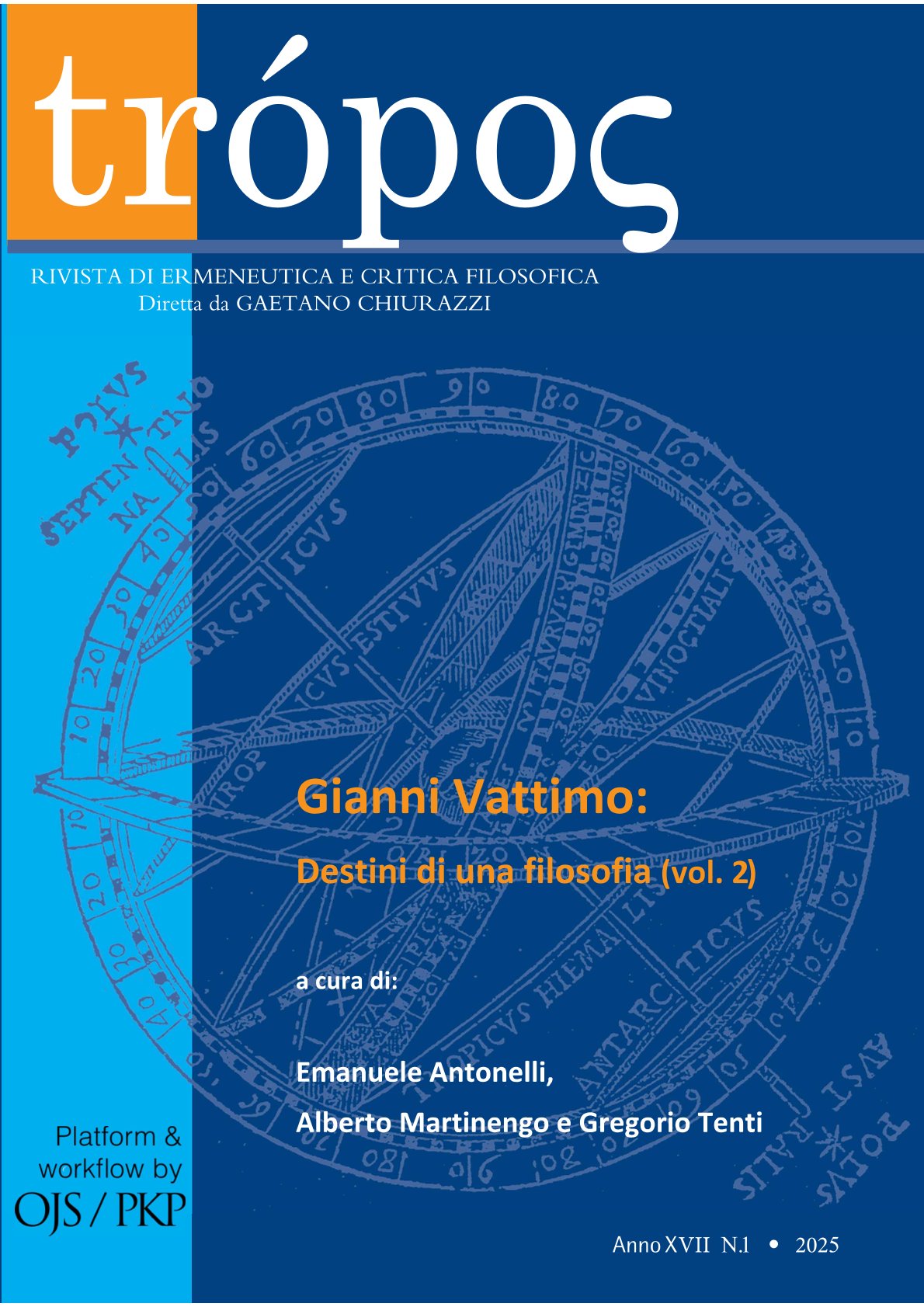Il pensiero debole come teologia politica.
La distinzione destra/sinistra e la sfida della gettatezza.
DOI:
https://doi.org/10.13135/2036-542X/12303Parole chiave:
fixed points, thrownness, kenosis, third, emancipationAbstract
This essay proposes an interpretation of Gianni Vattimo’s pensiero debole as a form of political theology, centred on the management of “thirdness”—a name for all mediating structures that allow for social order. Working in the framework put forward by René Girard and Jean-Pierre Dupuy, rather than viewing the right/left divide as a mere political taxonomy, the text frames it ontologically: the right affirms exogenous fixed points (tradition, sacredness, law), while the left seeks endogenous foundations through deliberation and shared meaning. However, genuine emancipation demands recognition of a nonviolent, irreducible third: Heidegger’s Geworfenheit (thrownness). Without this acknowledgment, even leftist attempts at freedom risk giving rise to impersonal, alienating collective subjects. Only by integrating, also in its political implications, thrownness as an ontological limit—and simultaneously as a condition of every authentic projection—can weak thought sustain a truly liberating project. In this way, kenōsis, as a historical and theological weakening of metaphysical absolutes, becomes the key to imagining collective agency beyond domination, without erasing the conditions for


